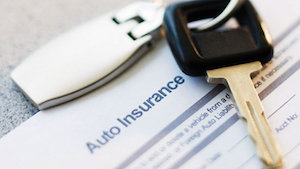Families might own multiple cars. Even single individuals might own more than one vehicle. One of these vehicles might be an older car kept for sentimental reasons, while the other might be an everyday car.
Whether you are in charge of your family’s vehicles, or just have numerous cars to manage yourself, you need to make sure you take care of all insurance matters with the vehicle. Sometimes, you can gain additional benefits by insuring these cars under the guises of a multi-car insurance policy. How can this coverage help you?
Multi-car policies are convenient, often cost-effective ways to help you provide multiple vehicles with the car insurance they always need. When insuring more than one car, don’t hesitate to ask your insurance agent about the feasibility of this coverage.
Coordinating Your Car Insurance
Car insurance policies have numerous components. Some of these parts follow the drivers listed on the policies. Other parts apply to the vehicles themselves. For example:
- Liability insurance will pay others in the event you are at-fault for a car wreck that harms them. The policy usually will pay for their bodily injuries or property damage.
- Physical damage insurance pays for damage to your car. Collision insurance pays for damage sustained in wrecks. Comprehensive coverage pays for damage from such hazards as theft, vandalism, severe weather or vehicle fires.
- Medical payments insurance pays you for your own injury costs after wrecks.
- Uninsured/underinsured motorist coverage pays for your own damage if another driver is at-fault for an accident, but lacks the liability coverage to pay for your car’s damage.
The physical damage and uninsured/underinsured motorist coverage pays for damage to your car, and thus will follow the vehicle. Other portions of your coverage, notably liability coverage, apply to your actions behind the wheels. These portions might apply regardless of which car you drive.
What Is A Multi-Car Policy?
Given the different pieces of car insurance, trying to coordinate your car insurance policy options might seem difficult. Doing so for numerous parties might seem even harder. How can you coordinate all the necessary coverage for multiple cars? What if there are numerous people in your household? Do they all need coverage?
The solution to these questions might be a multi-car insurance policy.
Multi-car insurance policies allow you to extend coverage to multiple vehicles and multiple drivers under the same policy parameters. When setting up the coverage, you will list each vehicle in your possessions. Most vehicles can receive coverage under these policies. You often can also choose coverage limits to apply specifically to each vehicle. However, you cannot insure commercial vehicles, RVs or motorcycles on the same coverage as cars, SUVs and trucks.
Furthermore, under this coverage, you can list multiple operators. Therefore, whichever family member drives whichever vehicle will still have liability coverage that applies to them when they drive. This can ensure that none of the drivers operate without coverage in their own name. You can usually insure spouses, dependent children and others in your family.
The Benefits Of This Coverage
You get several perks out of multi-car policies, namely cohesion of coverage, and the convenience of having protection in one place.
With these policies, you won’t have to juggle multiple types of coverage for multiple vehicles. It’s a lot easier to have one policy in one place, which you can quickly refer to in the event you need to make a policy claim. The coverage can also remain cohesive across all vehicles and drivers, though you can make specific changes to coverage if necessary.
Furthermore, there are certain cost incentives to these policies. Premiums are almost always lower on multi-car policies, when compared to the separate premiums of numerous policies. Additionally, by getting a multi-car policy, you still can often qualify for policy discounts that you might not see on any single-policy.